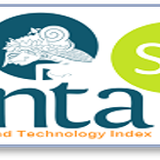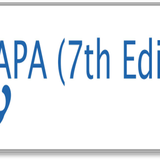Independent Corporate Governance Organs Activities And Tax Avoidance Activities: Evidence From Indonesia
DOI:
https://doi.org/10.24912/ja.v24i2.697Abstract
This study aims to examine the effect of independent corporate governance organs activities (i.e. the level of busyness and political connections of independent corporate governance organs) on tax avoidance activities. By using a sample of manufacturing companies and panel data analysis, this study finds evidence that: (i) The busyness level of independent directors and audit committee have a positive effect on tax avoidance activities. This indicates that the more positions or jobs hold by independent directors and audit committees, thus their duties to monitor the company may be neglected and in turn they are unable to detect that the company is engaged in aggressive tax avoidance; (ii) Political connections of independent directors and audit committees have a positive effect on tax avoidance activities. This suggests that independent directors and audit committees can take advantage from their political connections to make a politics lobby that can reduce the corporate tax burden.
References
Apriliani, Adiarti & Vera Diyanty. (2016). The impact of family ownership and political connections on earnings management. Prosiding Simposium Nasional Akuntansi (SNA) XIX, Universitas Negeri Lampung.
Arismajayanti, Ni Putu Ayu, & I Ketut Jati. (2017). Influence of audit committee competence, audit committee independence, independent commissioner and leverage on tax aggressiveness. Journal of Auditing, Finance, and Forensic Accounting, 5 (2), 109 – 119.
Balakrishnan, Karthik, Jennifer Blouin, & Wayne Guay. (2019). Tax aggressiveness and corporate transparency. The Accounting Review, 94 (1), 45 – 69.
Cashman, George D., Gillan, Stuart L., & Jun, Chulhee. (2012). Going overboard? On busy directors and firm value. Journal of Banking & Finance, 36 (12), 3248–3259.
Christensen, Dane M., Dan S. Dhaliwal, Steven Boivie, & Scott D. Graffin. (2015). Top management conservatism and corporate risk strategy: evidence from managers’ personal political orientation and corporate tax avoidance. Strategic Management Journal, 36 (12), 1918-1938.
Gunawan, & Elona Meita Situmorang. (2016). Pengaruh dewan komisaris, kepemilikan manajerial dan komite audit terhadap manajemen laba pada perusahaan BUMN di bursa efek Indonesia periode tahun 2011 – 2015. Jurnal Ekonomi, Manajemen, dan Perbankan, 2 (2), 55 – 62.
Hanlon, M. (2005). The persistence and pricing of earnings, accruals, and cash flows when firms have large book tax differences. The Accounting Review, 80 (1), 137-166.
Hanlon, M, Gopal V. Krishnan, & Lillian F. Mills. (2012). Audit fees and book-tax difference. Journal of the American Taxation Association, 34 (1), 55 – 86.
Jensen, Michael C. & W.H. Meckling. (1976). Theory of The Firm: Managerial Behavior, Agency Costs and Ownership Structure. Journal of Financial Economics, 3 (4), 305-360.
Kim, Jeong-Bon, Yinghua Li, & Liandong Zhang. (2011). Corporate tax avoidance and stock price crash risk: Firm-level analysis. Journal of Financial Economics, 100 (3), 639 – 662.
Kim, Chansog (Francis), & Liandong Zhang. (2013). Corporate Political Connections and Tax Aggressiveness. Contemporary Accounting Research, 33 (1), 78-114.
Midiastuty, Pratana Puspa, Eddy Suranta, Rini Indriani, & Sarry Irawati Putri. (2016). Pengaruh kepemilikan pengendali dan corporate governance terhadap tindakan pajak agresif. Simposium Nasional Akuntansi (SNA) XIX, Universitas Negeri Lampung.
Oktavia, Sylvia Veronica Siregar, Ratna Wardhani, & Ning Rahayu. (2019). The role of country tax environment on the relationship between financial derivatives and tax avoidance. Asian Journal of Accounting Research, 4 (1), 70 – 94.
Pranoto, Bayu Agung, & Ari Kuncoro Widagdo. (2016). Pengaruh koneksi politik dan corporate governance terhadap tax aggressiveness. The 3rd Call for Syariah Paper, FEB UMS.
Puspitasari, Andriana, & Yeterina W. Nugrahanti. (2016). Pengaruh Hubungan Politik, Ukuran KAP, dan Audit Tenure Terhadap Manajemen Laba Riil. Jurnal Akuntansi dan Keuangan, 18 (1),27-43.
Putri, Marissa, & Vera Diyanty. (2014). Pengaruh struktur kepemilikan dan mekanisme corporate governance terhadap tingkat pengungkapan laporan keberlanjutan. Simposium Nasional Akuntansi (SNA) XVII, Universitas Mataram-Lombok.
Raja, D.R., R. Anugerah, Desmiyawati, & Kamaliah. (2014). Aktivitas manajemen laba: analisis peran komite audit, kepemilikan institusional, persentase saham publik, dan leverage. Simposium Nasional Akuntansi (SNA) XVII, Universitas Mataram – Lombok.
Rajpal, Hanish. (2012). Independent Directors and Earnings Management – Evidence from India. International Journal of Accounting and Financial Management Research, 2 (4), 9-24.
Richardson, Grant, Bei Wang, & Xinmin Zhang. (2016). Ownership structure and corporate tax avoidance: Evidence from publicly listed private firms in China. Journal of Contemporary Accounting & Economics, 12 (2), 141 – 158.
Tang, Tanya, & Michael Firth. (2012). Earnings persistence and stock market reactions to the different information in book-tax differences: Evidence from China. The International Journal of Accounting, 47 (3), 369 – 397.
Waluyo. (2017). The effect of good corporate governance on tax avoidance: Empirical study of the Indonesian banking company. The Accounting Journal of BINANIAGA, 2 (2), 1 – 10.
Widuri, Retnaningtyas, Winnie Wijaya, Jessica Effendi, & Elvina Cikita. (2019). The effect of good corporate governance on tax avoidance of listed companies in Indonesian Stock Exchange in 2015 – 2017. Journal of Economics and Business, 2 (1), 120 – 126.
Downloads
Published
How to Cite
Issue
Section
License

This work is licensed under a Creative Commons Attribution-NonCommercial-ShareAlike 4.0 International License.
This journal provides immediate open access to its content on the principle that making research freely available to the public supports a greater global exchange of knowledge.

This work is licensed under a Creative Commons Attribution-NonCommercial-ShareAlike 4.0 International License



















